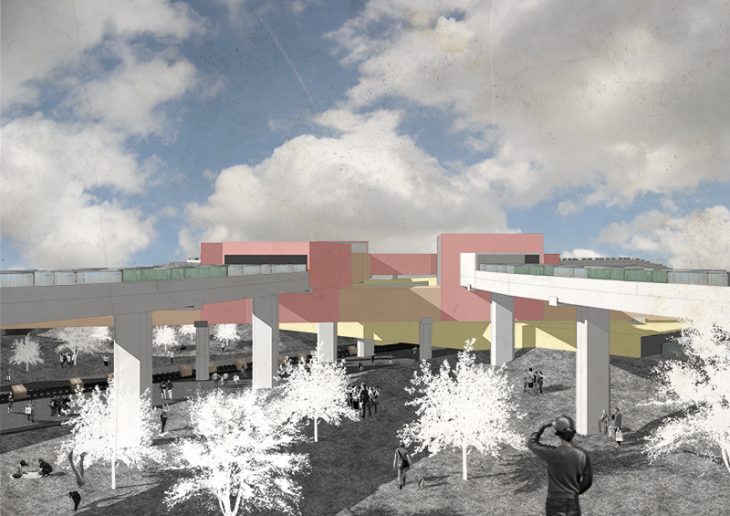
The project rises from a reflection about the ongoing paradigm shift, from an industrial to an informational society and its consequences on the infrastructures of the city. Most of the large scale infrastructures, such as train stations, factories or terminals, are gong to remain obsolete soon. The aim of the seminar is to understand which are the habitability needs of cities in the XXI century and the transformative strategies that these needs require in order to adapt old urban nodes of the industrial society to the demands on the new informational urban paradigm.
An highway node is a large scale infrastructure that in the near future will be obsolete, due to the decrease of vehicles transport. On the other side, cities will need huge waste infrastructure, thus the production of waste is increasing.
Prince Clausplein highway is a stack interchange which connects the most important cities in the Netherlands, like Amsterdam, Rotterdam and Utrecht. This project is a proposal for the conversion of an highway node into a recycling and making center. Car flows are substituted for materials and new products flows and the node changes from a passing point to a production center. Plastic, metal, glass, paper, furnitures, textiles, electronics and organic waste are sorted and prepared for recycling. In some cases this materials are used for the production of new objects in the making center. Materials flows take advantage of the slope of the old stack interchange and work top-down: in the highest level of the node entering materials are sorted, cleaned and prepared for recycling and in the lower they are processed in order to create new objects to be sold in the node market.

Smart City Infrastructure – Highway Interchange is a project of IaaC, Institute for Advanced Architecture of Catalonia developed at Master in City and Technology in 2015 by:
Students: Chiara Dall’Olio
Faculty: Willy Müller